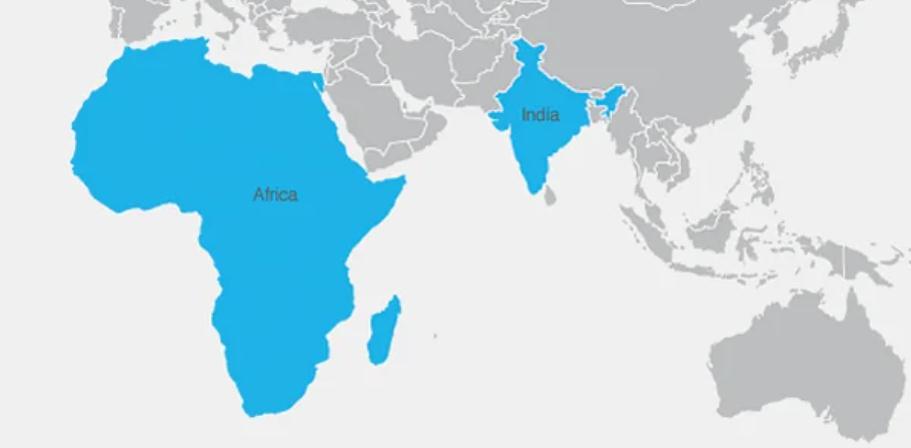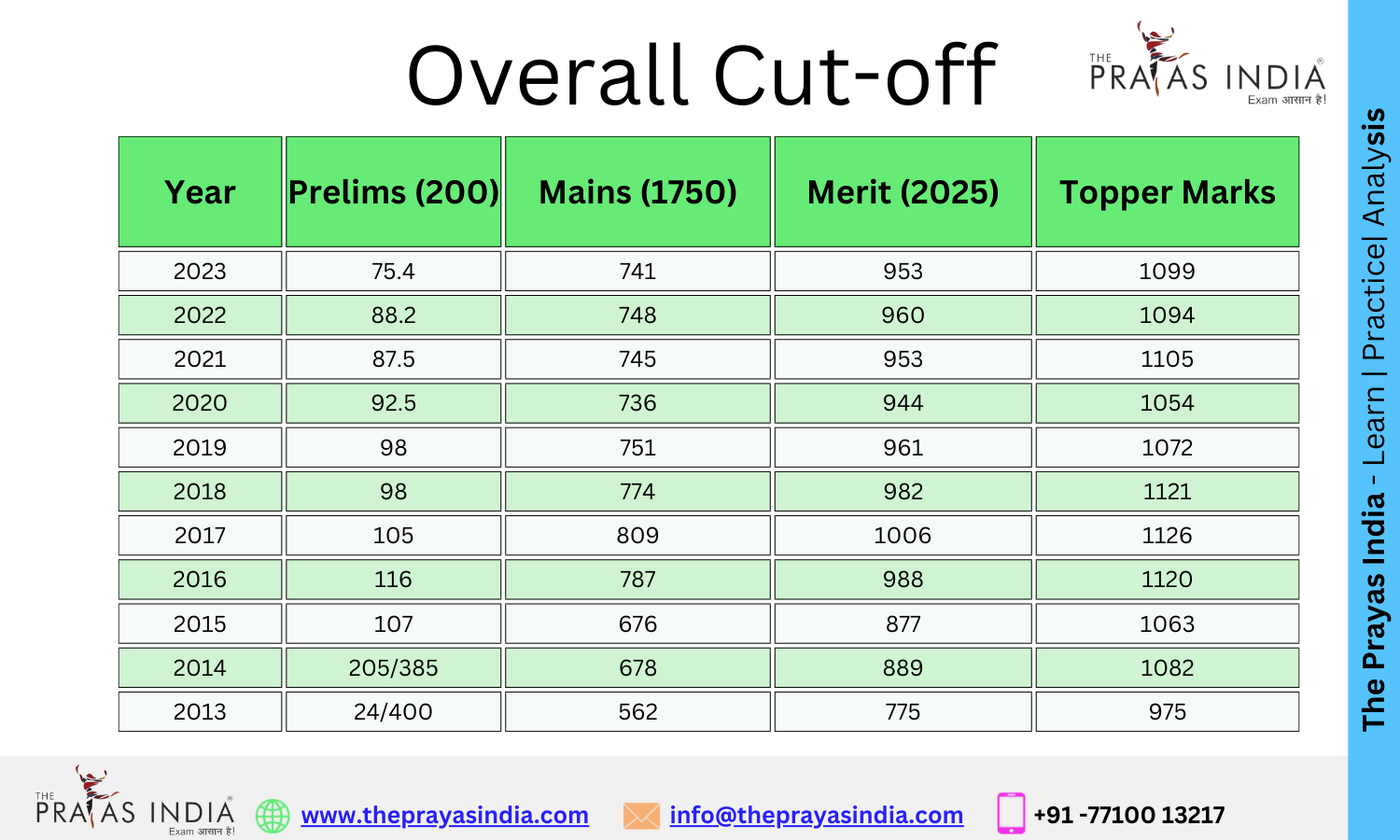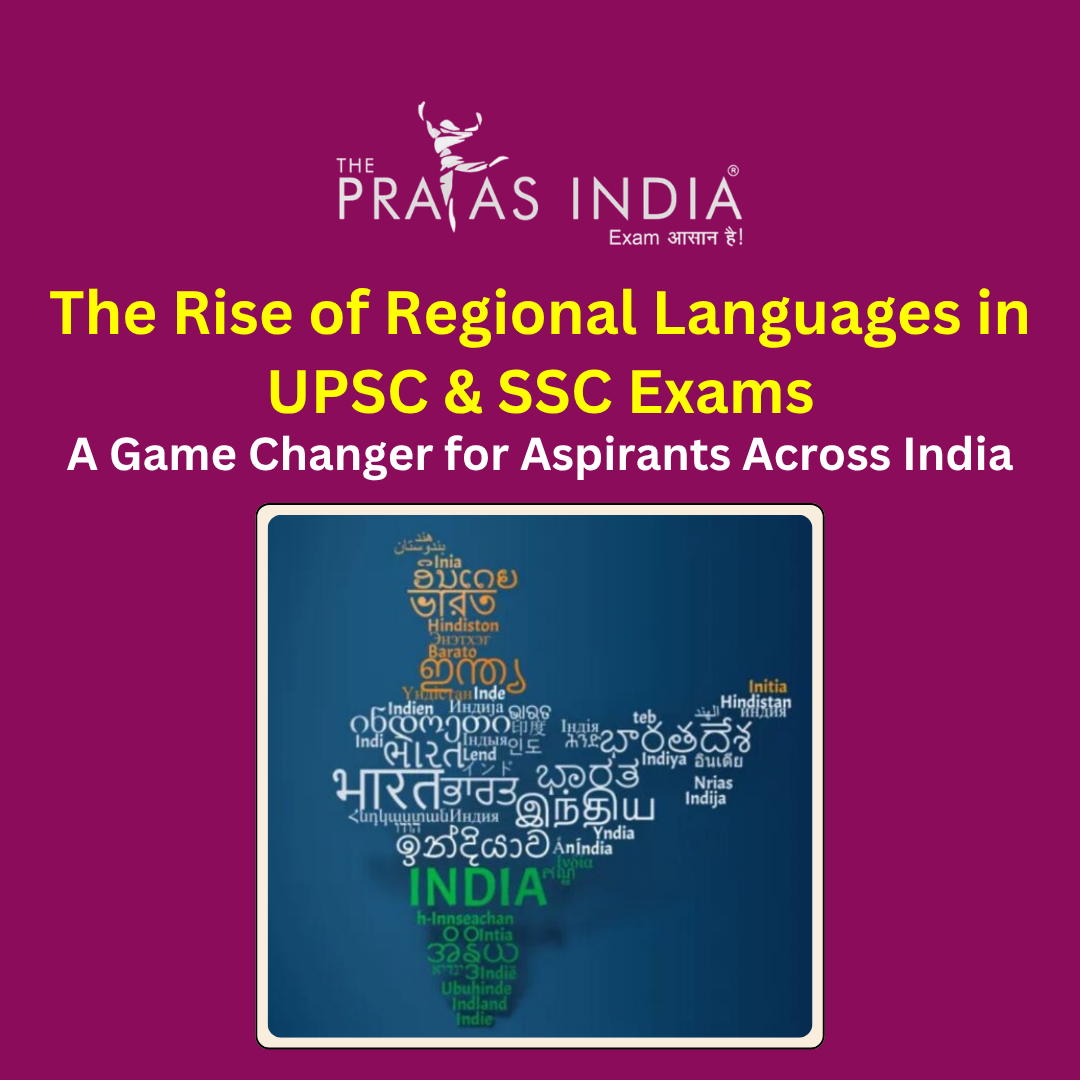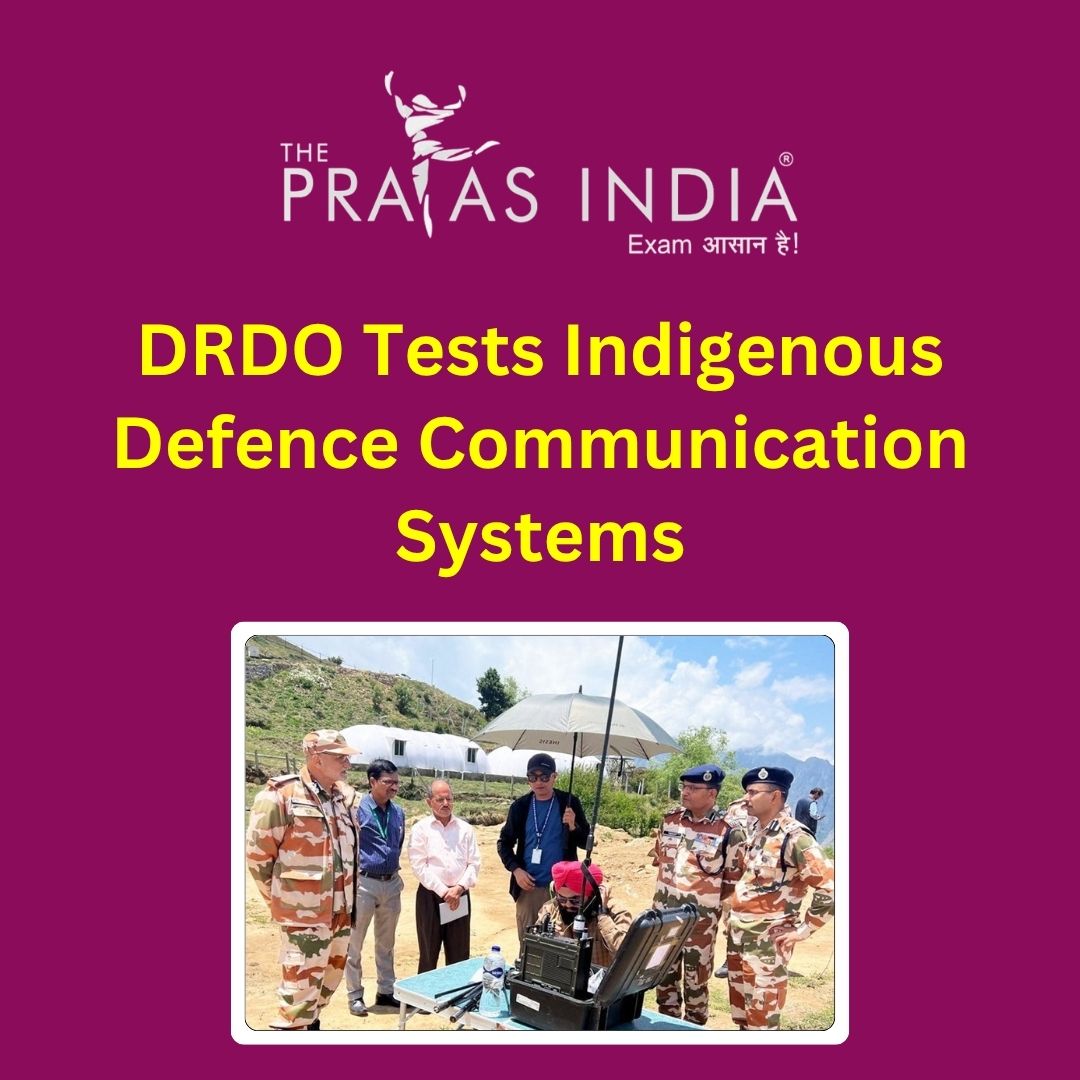India’s Relationship with Africa

Historical Background
India’s links with the struggle for freedom and justice in South Africa date back to the period during which Mahatma Gandhi started his Satyagraha movement in South Africa over a century ago. India was at the forefront of the international community in its support to the anti-apartheid movement; it was the first country to sever trade relations with the apartheid Government (in 1946) and subsequently imposed a complete — diplomatic, commercial, cultural and sports — embargo on South Africa. India worked consistently to put the issue of apartheid on the agenda of the UN, NAM and other multilateral organizations and for the imposition of comprehensive international sanctions against South Africa. The ANC maintained a representative office in New Delhi from the 1960s onwards. Following talks between the then South African Government and the ANC, India’s relations with South Africa were restored after a gap of over four decades with the opening of a Cultural Centre in Johannesburg in May 1993. Formal diplomatic and consular relations with South Africa were restored in November 1993 during the visit to India of the then South African Foreign Minister Pik Botha. A Consulate General was thereafter established in Johannesburg. The Indian High Commission in Pretoria was opened in May 1994, followed by the opening of the
Consulate General in Durban the same month. Since Parliament in South Africa meets in Cape Town, a permanent office of the High Commission was opened there in 1996, which has been re-designated as Consulate General of India with effect from January 2011. In addition to its High Commission in Delhi, South Africa has a Consulate General in Mumbai.
Political Relations
Development of political relations since 1994 Against the background of India’s consistent support to the anti-apartheid struggle, there has been a steady consolidation of our close and friendly ties with South Africa, both bilaterally and through the trilateral IBSA Dialogue Forum. A number of bilateral agreements have been concluded between the two countries since the assumption of diplomatic relations in 1993 in diverse areas ranging from
economic and commercial cooperation, defence, culture, heath, human settlements, public administration, science and technology and education. India’s Technical and Economic Cooperation Programme (ITEC) has been a useful
medium of promoting cooperation in development of human resources.
Dating back several centuries, the relations between India and African countries are driven and shaped by a number of factors, including trade and investments, cultural, historical and political engagements. A youthful demography, fast-growing economies and vast amount of natural resources are something that both sides enjoy, causing envy and interest in rest of the world. These are the things that have prompted the 5 days visit of Vice President Venkaiah Naidu from 30th of May to 3rd of June, 2022 to Gabon and Senegal. In the last leg of his visit, the Vice President will be in Qatar from 4th to 7th of June.
This is the first visit from India at the level of Vice President to all three countries and the first-ever high-level visit from India to Gabon and Senegal. The visits to Gabon and Senegal are set to add momentum to India’s engagement with Africa and emphasise India’s commitment to this continent as Africa is increasingly becoming important to India’s foreign policy calculations also.
Vice President completed his first leg of visit to Gabon from 30th of May to 1st of June 2022. During the visit, he held delegation level talks with Prime Minister of Gabon H.E. Rose Christiane Ossouka Raponda. Vice President also called on President of Gabon H.E. Ali Bongo Ondimba and met other dignitaries. He also interacted with the business community in Gabon and addressed Indian diaspora. Both sides held a series of bilateral engagements advancing cooperation across spheres including trade, investment, energy, ICT, capacity building, health, pharmaceuticals and more.
More than 50 Indian companies are engaged in Gabon Special Economic Zone (GSEZ), the place Vice President visited Wednesday. Both sides signed two MoUs for establishing Joint Commission and Diplomats’ training. Around 800 Indians are living in Gabon, engaged in infrastructure projects, trading and exports of timber and metal scrap.
India and Gabon are currently non-permanent members of the United Nations Security Council (UNSC) and bilateral trade between the reached 1.12 US dollar in 2021-22. Under the Indian Technical and Economic Cooperation (ITEC) and ICCR schemes, a number of Gabon nationals pursue education in India under scholarship and training programmes offered here.
Similarly, India and Senegal bilateral trade reached 1.65 billion in 2021-22 with Indian offering a total of 16 lines of credit amounting to 350 million US dollar and Buyers Credit of about 305 US dollar in various sectors. However, comparing with these African countries India has much larger trade and people to people relations with Qatar and other Muslim countries. India-Qatar bilateral trade has already cross 15 billion US dollar in 2021-22 with Qatar committing investments of over 2 billion US dollar in various Indian companies over the past two years. Besides, more than 7.5 lakh Indian are living in Qatar.
Coming back to the growing relations with Africa- not only India but rest of the globe is also far more interested in this continent today than any time in history.
India and Africa’s historical links and relations have experienced a revival in recent years and both sides understand the fact that it is a win-win situation as growing relations are mutually beneficial. India-Africa trade has grown to around 66.7 billion US dollar in 2019-20. Around 8% of Indian imports are from Africa and around 9% of Africa’s imports are from India. The investment of India’s public and private sector enterprises are increasing in Africa, making it the 8th largest investor in African.
In recent years, besides loan and investment, India has also given ample amount of aid to Africa to fight the Covid-19 pandemic. Under the Vaccine Maitri initiative, India supplied 24.7 million doses of Made of India Covid vaccines to 42 countries in Africa.
Clearly, India looks to engage with Africa meaningfully, focusing much on its core competencies like human resource development, training and skill development, IT, ITES, education and healthcare services unlike China who focuses majorly on developing manufacturing capacities and infrastructure in Africa. While, China’s economic model of engagement with Africa looks attractive and has also paid rich dividend in recent years, the fascination for India’s support for democratic practices, processes, institutions and people to people engagement is high in Africa.
India also has an advantage of language and cultural affinity. English is far more prevalent among the people in African countries than any other language, making it much easier for Indian to interact with African people. Moreover, over 3 million strong Indian diaspora in Africa also proves to a crucial strategic asset for India to further its relations with African countries.
Over half a dozen countries in Africa are among the fastest developing economies including Rwanda, Senegal, and Tanzania, making it one of the growth pole of the world. Real GDP in Africa in the past decade has grown almost twice. African continent has a population of over one billion with a combined GDP of 2.5 trillion dollars, which makes it a huge market.
Taking these all things into account, India is making consistent efforts towards strengthening relations with Africa. Launched in 2008, India’s duty-free tariff preferential scheme for Least Developed Nation has benefited 33 African states. The India–Africa Forum Summit- the official platform for the African-Indian relations, is also contributing immensely to this building up process.
In the past, the geographical proximity and easy navigability in Indian Ocean resulted in well-established trade relations between India and Africa, much before the European exploration.
India-Africa Forum Summit 2020
It is held triennially. The latest India-Africa Forum Summit took place virtually from 4th to 6th November 2020. The first summit was held in 2008 in New Delhi.
The underlying discussion and focus in the latest India-Africa Forum Summit (IAFS) were on the enhancement of ties to the 100*100 matrix by 2025. This signifies the target of achieving 100 billion USD of trade and 100 USD of investment between India and Africa.
Significance of Africa to India
- Resource rich region – Africa is a resource rich nation dominated by commodities like crude oil, gas, pulses and lentils, leather, gold, and other metals, all of which India lack in sufficient quantities.
- Energy Security – India is seeking diversification of its oil supplies away from the Middle East and Africa can play an important role in India’s energy matrix.
- Strategic Interests – especially with regards to the Horn of Africa region, which is an essential shipping lane that connects the Indian Ocean to the Suez Canal.
- Investment Opportunities – several African countries have been providing incentives to attract foreign investors and partners in growth thus providing an opportunity for India.
- African continent has a population of over one billion with a combined GDP of 2.5 trillion dollars making it a huge potential market.
- Exports – Africa has emerged as an important market for Indian goods and services.
- India can also unleash massive possibilities in digital penetration in the continent.
- Economic Growth – Africa is home to over half a dozen of the fastest growing countries of this decade such as Rwanda, Senegal, and Tanzania etc making it one of the growth poles of the world.
- Reform in Global institutions – India’s ambition to become a permanent member of the UN Security Council makes it imperative that it engages with all 54 countries of the continent.
- Convergence of interest – both partners are aligned on the outstanding issues at the World Trade Organization (WTO) and are in favour of multilateral trading systems.
- Cooperation to tackle terrorism: India strongly advocated stepped-up cooperation through intelligence exchange and training with 54 African countries.
After the decolonisation of Africa, India and the African countries took a similar stand on various international issues. They expressed full faith in the policy of non-alignment and peaceful coexistence. On the wider economic issues like North-South Dialogue also they have worked in complete co-operation and have come to accept the need for closer horizontal co-operation between the undeveloped countries.India is becoming an increasingly important economic and development partner for African countries.
Impact of Afro-Asian Resurgence on International Relations
- Change in the nature of international relations
- It gave a setback to imperialism and racism
- Gave serious setback to the colonial system
- The democratisation of International Relations
- Helped in strengthening world peace
- Prominent role at the UN
- The increased importance of the UN
- A significant role in the creation of NIEO.
India and the Liberation Struggle in Africa
India has consistently supported the Liberation Movements in various African countries and took up the cause of the African countries in the United Nation, the commonwealth Conferences and other international forums. First, India tried to impress on the United States that the Trusteeship System should be worked in the interest of dependent people and there should not be any parcelling out of territories on the basis of strategic needs. India also insisted that the Trusteeship powers must supply regular information to the UNO regarding the measure taken by them or proposed to be taken by them with a view to expediting the grant of independence or self-government to the trust territories.
Areas of Cooperation
- Economic relations – India is the 5th largest investor in the African continent
- Trade between India and Africa has increased more than eight-fold from $7.2 billion in 2001 to $63 billion in 2017-18.
- Indian businesses are active across geographic spaces and sectors in Africa like agri-business, engineering, construction, film distribution, cement, plastics, and ceramics manufacturing, etc.
- People to people contact – large numbers of African entrepreneurs, medical tourists, trainees, and students have started coming to India and Indian experts and entrepreneurs are moving to Africa.
- Peace keeping operation – India is the largest contributor to UN-mandated peacekeeping and other operations in Africa.
- more than 30,000 personnel are involved in 17 of 22 total missions in the region since 1960.
- Medical Field – Indian-manufactured drugs has also been essential in the fight against the HIV and AIDS pandemic in Africa.
- Covid 19 Response – India has used its economic capacity, medical equipment, and medicine, to assist African countries.
- Asia-Africa Growth Corridor – an economic cooperation agreement between India and Japan that envisages closer engagement between Asia and Africa for “sustainable and innovative development”
Challenges
Internal Instability
Internal political unrest in some African countries may influence India’s long-term investment potential. For example, since 2013, South Sudan has been engulfed in civil violence.
Social Conflicts
Foreign contributors are hesitant to come into the region because of ethnic and religious tensions, as well as governance concerns in some nations.
Terrorism
In the last few years, terrorist assaults by Al-Qaida and ISIS-affiliated extremists have increased dramatically across Africa. To battle the threat of terrorism and maintain security and unity, India has deployed personnel and weapons in many African nations in the past and plans to do so in the future.
China Factor
In Africa, there is a rivalry between India and China. In terms of trade, China and Africa have a $220 billion trade surplus. China’s first overseas military post was in Djibouti.
There should be more connectivity and face-to-face contact, which is critical for the development of relationships. For example, random attacks against African nationals in India have been a source of worry; such instances should be treated with zero tolerance in India.
Ultimately, just as India and Africa collaborated to combat colonialism, both sides should collaborate to construct a just, representational, and egalitarian world order that grants a voice to one-third of humanity.
Way Ahead
- India can play a pivotal role in the economic development of several African countries in industry-based skill developments, employment, financial inclusion, basic needs of people across the African continent, infrastructure creation and providing connectivity through greater and deeper penetration of telecom networks.
- Bridging gaps in trade finance could unlock the latent export potential of India and Africa and could increase the share in global export participation of both regions.
- India needs to be dynamic in its engagements in Africa and address the changing needs of the Continent while emphasising the huge opportunity the African Continental Free Trade Area agreement presents for India.


![Prayas-लक्ष्य [UPSC CSE Target] The Prayas India](https://theprayasindia.com/wp-content/uploads/2021/08/Prayas-लक्ष्य-UPSC-CSE-Target-The-Prayas-India-300x167.png)

![Prayas Pre-भेदश [UPSC CSE Prelims Test Series] The Prayas India](https://theprayasindia.com/wp-content/uploads/2021/08/Prayas-Pre-भेदश-UPSC-CSE-Prelims-Test-Series-The-Prayas-India-300x167.png)










